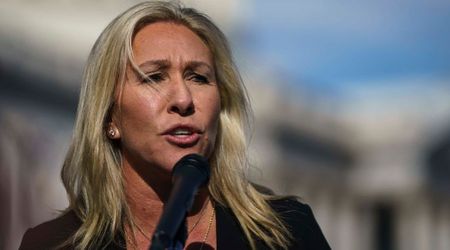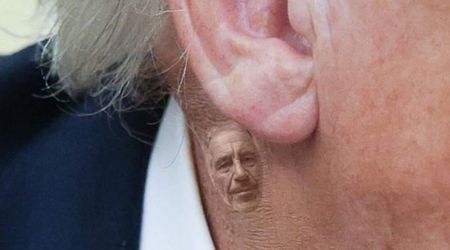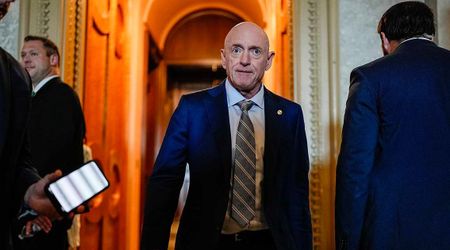5 key takeaways from ruling that allows DA Fani Willis to remain on Trump's Georgia election subversion case
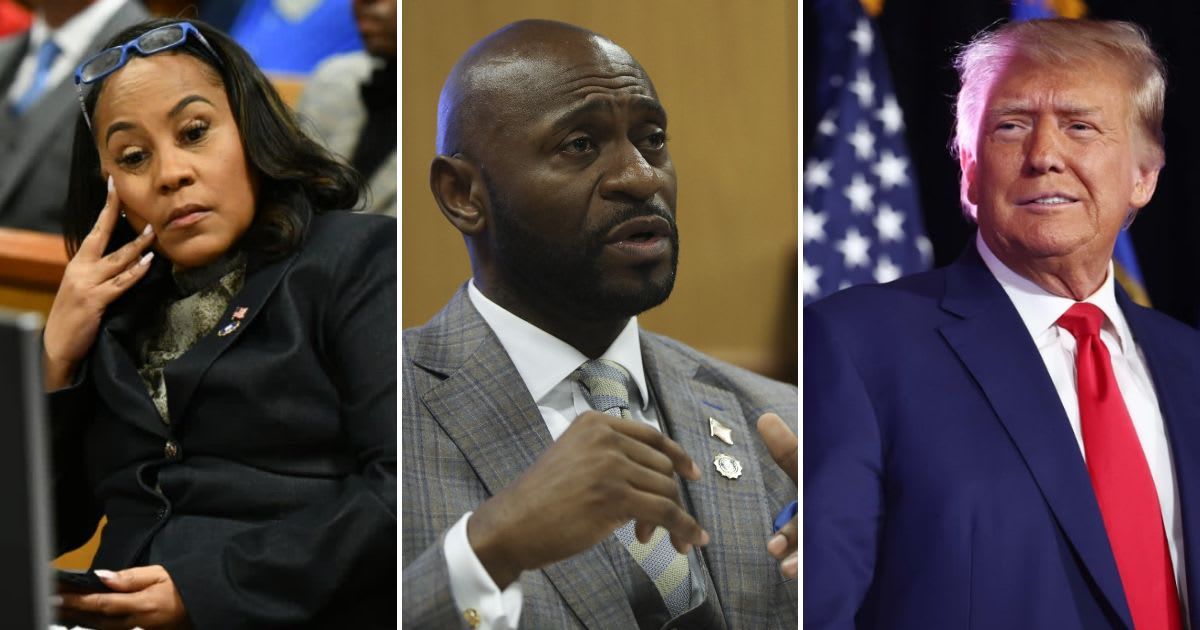
5 things to note from Judge Scott McAfee's ruling that allows Fulton County DA Fani Willis to remain on the Trump election subversion case

In his Friday, March 15, ruling, Judge Scott McAfee allowed Fulton County District Attorney Fani Willis to proceed with the case against Donald Trump concerning the former president’s alleged role in interfering with the 2020 Georgia presidential elections. However, Willis had to let go of special prosecutor Nathan Wade after a two-month-long scandal put both of them on trial due to their romantic relationship. Although it's a legal win for Willis and her team, it's unclear whether Trump will face trial before November for his actions in the 2020 presidential elections. McAfee's ruling, which spanned 23 pages, strongly criticized the District Attorney's actions and stated that either Willis or Wade would have to leave the case, as the circumstances of their relationship left an "odor of mendacity." Here are five points to ponder upon after the judge's scathing ruling:
1. Fani Willis keeps on, but at what cost?

Fulton County District Attorney Willis managed to survive the disqualification challenge on Friday, however, the momentum in her case has already regressed since her intimate relationship with special prosecutor Wade became public knowledge. The episode has put a blemish on her record, which might affect the public's perception of her, especially since the 2024 election is near. Potential jurors are likely to be aware of the affair and its consequences. Judge McAfee criticized Willis and Wade's relationship, stating that it was the result of "bad choices." Nonetheless, he wrote, "Georgia law does not permit the finding of an actual conflict for simply making bad choices – even repeatedly." In January, their relationship took center stage when co-defendant Mike Roman filed a motion to disqualify Willis over allegations of an "improper" relationship. Throughout the trial, Judge McAfee heard several testimonies about their supposed romantic involvement and the payments Wade made on trips they took together. The defendants claimed that Willis benefited monetarily from their relationship, but she said she had reimbursed Wade in cash. Both Willis and Wade took the stand, but the DA's appearance seemed strange because she delivered exasperated responses to the lawyers bringing allegations against her. In his ruling on Friday, the judge noted, "This finding is by no means an indication that the Court condones this tremendous lapse in judgment or the unprofessional manner of the District Attorney’s testimony during the evidentiary hearing."
2. The Trump train keeps moving on track despite all odds

The ruling partially favors the MAGA strongman's attempt to push back his four criminal trials and turn the tide on the prosecutors who have indicted him. Trump's legal team has employed various tactics to delay all four of his criminal trials, to keep the former president active on the campaign trail this year. The case regarding the ex-POTUS' election interference in Washington is currently on hold, and the Supreme Court will hear arguments in April over the former president's immunity claims. Similarly, for the Florida classified documents case, the Trump-appointed judge is expected to schedule a new trial date soon after discussing timing at a hearing two weeks ago. Meanwhile, in New York, where Trump's first criminal trial was about to begin in less than two weeks, the judge delayed the trial until at least mid-April. The postponement resulted from the US Attorney's office in Manhattan turning over tens of thousands of new pages of evidence. Trump's defense team has not merely relied on delay tactics. They have also tried to shift the attention away from Trump's dozens of criminal charges to undermine the prosecutors who have indicted him and spread distrust among his ever-ardent supporter base on the United States legal system itself. Judge McAfee stated, "A perceived conflict in the reasonable eyes of the public threatens confidence in the legal system itself. When this danger goes uncorrected, it undermines the legitimacy and moral force of our already weakest branch of government."
3. Judge rules financial benefit from Nathan Wade wasn't a motivating factor on the part of Fani Willis to indict and prosecute the case
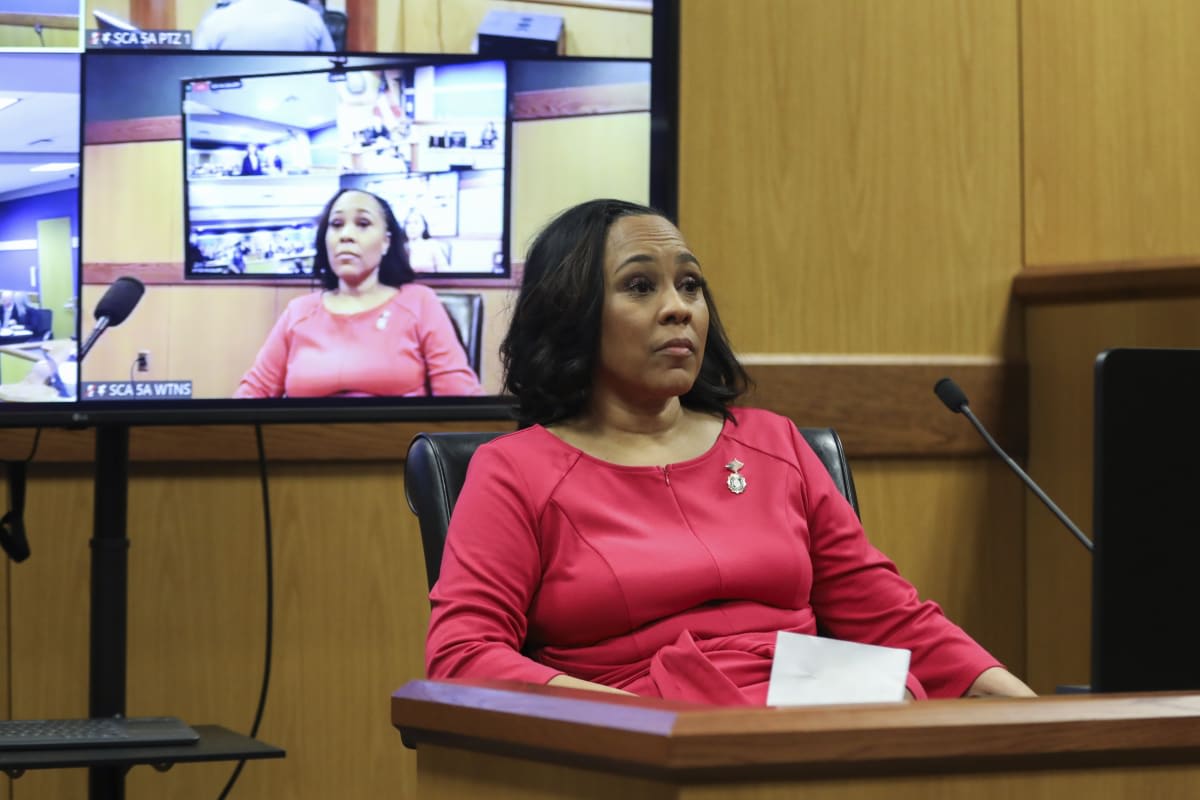
Judge McAfee stated that there were still some uncertainties regarding the timeline of Wade and Willis' relationship. According to the defendants, their relationship began before Wade was hired in 2021, and the payments they had made while traveling together. However, the judge ruled that there was insufficient evidence to support the allegations against them. "Reasonable questions about whether the District Attorney and her hand-selected lead SADA testified untruthfully about the timing of their relationship further underpin the finding of an appearance of impropriety and the need to make proportional efforts to cure it," stated McAfee. He further remarked, "Ultimately, dismissal of the indictment is not the appropriate remedy to adequately dissipate the financial cloud of impropriety and potential untruthfulness found here." McAfee pointed out that Willis' testimony and evidence indicated that any financial benefit from Wade "was not a motivating factor on the part of the District Attorney to indict and prosecute this case." He also ruled that, while Willis kept no records of the payments she claims to have made to Wade as repayment for vacation travels they had together, her assertion that she paid him back in cash "was not so incredible as to be inherently unbelievable." The judge pointed out, "The Defendants have not presented sufficient evidence indicating that the expenses were not ‘roughly divided evenly.'"
4. Nathan Wade resigns immediately after Judge Scott McAfee's ruling

Judge McAfee made it clear in his ruling that if lead prosecutor Wade were to remain on the case, it would give the impression of "compromising influences." If Judge Willis had decided to take her office off the case, it would be transferred to Georgia's Prosecuting Attorneys' Council for reassignment. This transfer could have potentially disrupted the intricate racketeering case, depending on who presided over it next. McAfee wrote, "An outsider could reasonably think that the District Attorney is not exercising her independent professional judgment totally free of any compromising influences. As long as Wade remains on the case, this unnecessary perception will persist." The judge chastised him for failing to disclose his relationship with Willis during his divorce hearings, implying that it gives the public the feeling that he might still conceal a financial or romantic connection with the DA. Wade sent in his resignation letter to District Attorney Willis on Friday following the hearing wherein he expressed how proud he was of their team's work. He noted, "The furtherance of the rule of law and democracy is and has always been the North Star of our combined efforts in the prosecution of those who are alleged to have attempted to overthrow the results of Georgia’s 2020 Presidential Election." Willis accepted Wade's resignation and praised the former special prosecutor for his efforts, saying, "I compliment you for the professionalism and dignity you have shown over the last 865 days, as you have endured threats against you and your family, as well as unjustified attacks in the media and in court on your reputation as a lawyer."
5. Judge Scott McAfee lambasted Fani Willis' outrageous courtroom speech warning her of a future gag order

Judge McAfee criticized the actions of DA Willis and deemed the comments she made at an Atlanta-area church in January as "legally improper." He also warned her of the possibility of a future gag order. This follows Willis' remarks about Wade being targeted because he was a "Black man." The defendants cited this incident among others as evidence for her disqualification, alleging that she was publicly targeting Trump and his co-defendants which could prejudice the case. Willis stated that she was not referring to criticism from the defendants in her election subversion case, including Trump when she made those comments. McAfee argued that the remarks made by her were too far removed from a jury trial to "establish a permanent taint of the jury pool". The Fulton County Superior Judge maintained, "The Court cannot find that this speech crossed the line to the point where the Defendants have been denied the opportunity for a fundamentally fair trial or that it requires the District Attorney’s disqualification." McAfee additionally wrote, "But it was still legally improper. Providing this type of public comment creates dangerous waters for the District Attorney to wade further into." Regarding the possibility of a gag order, the judge stated that "the time may well have arrived for an order preventing the State from mentioning the case in any public forum to prevent prejudicial publicity, but that is not the motion presently before the Court."



